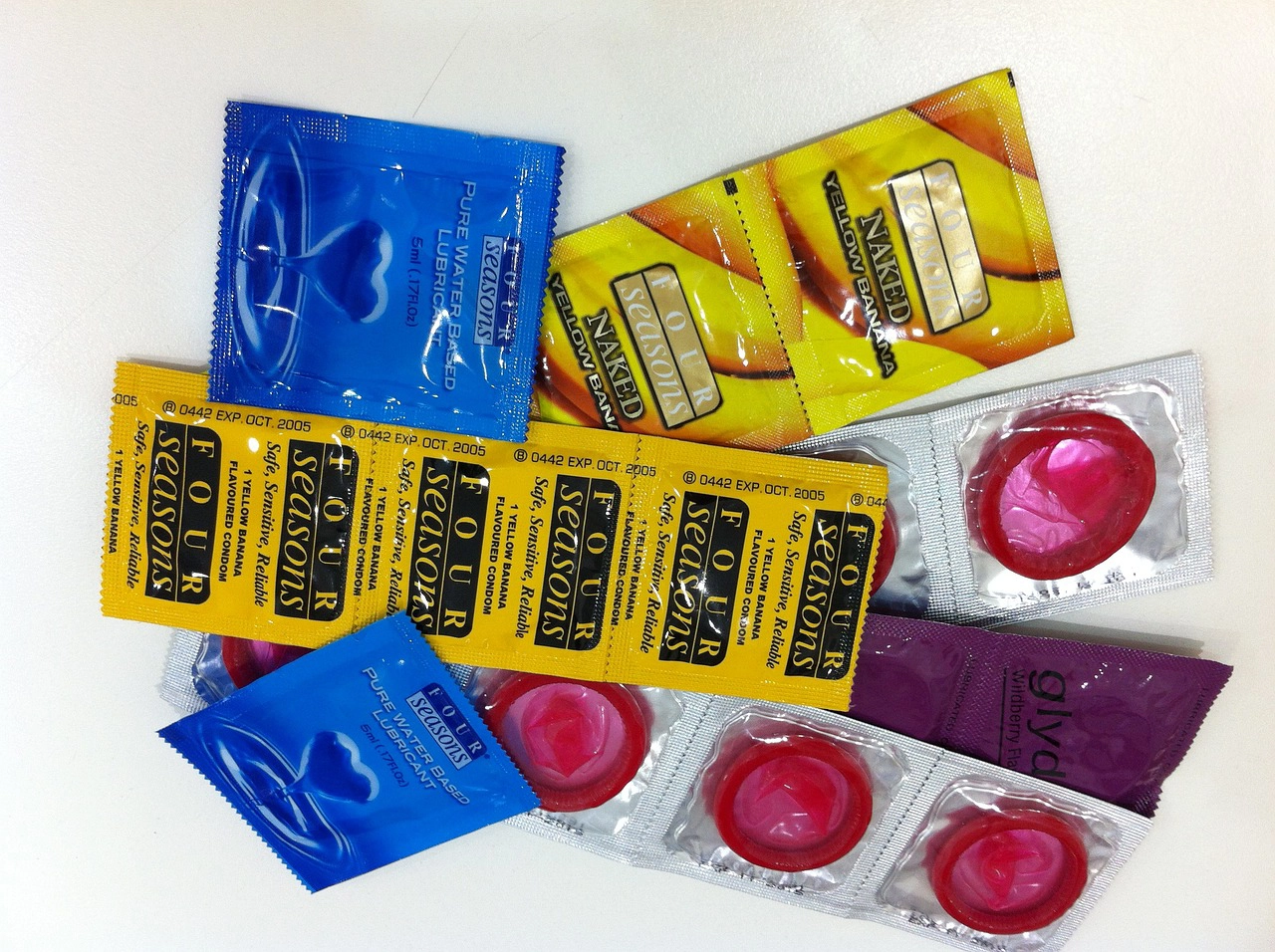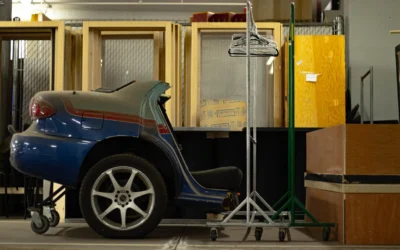With sexually transmitted infections on the rise, where can students get tested and how can we reduce the stigma?
When you hear the term “safe sex”, you probably envision the same thing I do: a woman, around 60 years old, standing in front of you and putting a condom on a banana as you watch her in disgust. It truly is a mortifying sight. And not only does it not make me want to use a condom after seeing it rolled down onto the tip of my favourite morning snack, it makes me not want to have sex at all.
Over the course of 2022 in Edmonton, STIs continued to spread, and for students specifically, this increase poses a huge threat. We’ve all heard about STDs (Sexually Transmitted Diseases) or STIs (Sexually Transmitted Infections), but do you really know what each type of infection is? Alberta Health Services reported increases in chlamydia (19.4 per cent), HIV (10.2 per cent), and decreases in gonorrhea (4 per cent) and infectious syphilis (8.3 per cent) in the Edmonton zone from 2021 to 2022. Provincewide, there have been increases in chlamydia, HIV, and syphilis (19.4, 17.2, 2.4 per cents, respectively), with the gonorrhea rate decreasing by only 0.6 per cent within the same time frame.. I know that fluffy magazine stories and social media posts love to drill the term “safe sex” into our heads, but what is it, really?
Typically, in today’s society, if you’re sleeping with only one person, you’re seen as faithful. Caring. Lovable. Sweet. But, if you have more than one sexual partner, you’re seen as debauched. Irresponsible. Promiscuous. Risky. Why? For the same reason cat people with six kittens running around their house are labelled as crazy. There’s nothing wrong with having multiple partners, just as there’s nothing wrong with having multiple cats. But, if a cat owner started sneezing and coughing, and realized that one of their cats was affecting their overall health, you’d expect them to do something about it, right? So, why not treat our sexual health the same way?
Many people might think, “I’m probably not at risk,” “I don’t need to get tested,” or “That’ll never happen to me,” but that can be dangerous thinking. Kristie Benson, program assistant at the Centre for Sexual and Gender Diversity on MacEwan’s campus, explains that STIs are far more common than we realize. “If you’re sexually active, you’re going to come in contact,” she says. “It’s like being a human and not coming in contact with the common cold.” She reveals that students often feel young and invincible, but need to understand the effects — sometimes lasting or even fatal — of being sexually active and dealing with STIs. “When it comes to this type of stuff, your health matters,” she adds, “You matter.”
“When it comes to this type of stuff, your health matters. You matter.”
Kristie Benson, Program Assistant at the Centre for Sexual and Gender Diversity
One of the main reasons that deters students from seeking help around STIs is the stigma. Infections like chlamydia, gonorrhea, syphilis, HIV, and HPV, can be seen as “gross” or “embarrassing” among teenagers and young adults. Benson reveals that “there’s so much stigma, but also so much misinformation.” And that’s exactly why she says it’s important to get tested and know what’s going on.
The ideas around sex have changed drastically, and not for the better. “I grew up in a generation where HIV was a death sentence, so barriers were just a common practice,” Benson reveals. “Now we’re seeing with young people, barriers are used less and there’s more risky behaviour.”
“There’s no right or wrong way to be sexual. It’s [about] navigating those risks and safety yourself, but [also] being armed with information.”
Kristie Benson, Program Assistant at the Centre for Sexual and Gender Diversity
At MacEwan, the Griff conducted an anonymous student survey to get some insight into the number of students who know about STIs and the resources. The survey had a total of 14 respondents at the time of writing. The feedback shows that 85.7 per cent of students are aware of the sexual health resources available on campus, while 14.3 per cent have not heard of them. However, only 71.4 per cent of those people said that they were actually likely to use the resources. When asked if they have ever been tested for an STI before, the students’ feedback shows that 42.9 per cent have been tested, while 21.4 per cent admit to having never been tested before. Additionally, only 35.7 per cent say that they would be willing to get tested, when in reality, this number should be at 100 per cent. So, why is this? The lack of information around resources and testing, and the general stigma around the topic all play a big part.
When reaching out for help, a lot of people just don’t know where to go. The MacEwan University Health Centre (located at 10507 109 St. NW) offers STI testing, swabs, lab work requisitions, printed pamphlets and resources, and much more. Staff Supervisor Annie Mueller says that she wants the clinic to be a safe space for everybody, where students won’t be judged or put in an awkward situation.
Sophie Chapman, a licensed practical nurse (LPN) at the MacEwan University Health Centre says “we’re a very non-judgmental, comfortable place that encourages [STI testing], rather than discourages it. We want people to be aware of it and use the resources. There’s no judgment around it at all, regardless of your history or what you do.”
“We want people to be aware of it and use the resources. There’s no judgment around it at all, regardless of your history or what you do.”
Sophie Chapman, LPN at the MacEwan University Health Clinic
MacEwan’s health centre aims to educate students about STIs and offer a safe space to learn. Chapman says there’s a lack of education and understanding around STIs, including what people can do if something were to happen to them. You can get tested three days after exposure, and there are various ways to contact others to let them know that they have come in contact.
The centre also has contact tracing forms, which are anonymous forms that let a sexual partner know that they may need to get tested. “Technology is so advanced now that even if it’s a hookup from Snapchat or Tinder…you don’t even need the person’s number or name,” Chapman says. “You just need their handle, and there are ways of contacting them.”
Some tests, such as the ones for HIV and syphilis, require blood work conducted at a lab. Swabs, which can be performed by a health-care professional or yourself, are the most accurate test for other STIs like chlamydia or gonorrhea.
“I think the biggest thing is like, always trying to have protection on you.”
Sophie Chapman, LPN at the MacEwan University Health Clinic
If you do require a urine or blood test, patients will be provided with a lab requisition form, free of charge. However, in order to receive treatments and results, students do have to be registered at the clinic and make appointments via telephone. “I know students don’t like speaking on the phone, but there’s information that’s important to gather from there so that we know if we’re doing the right thing,” Mueller says. “It might be something completely different.”
If coming into the clinic for a swab, Chapman recommends having “all places of the body that you use for sex swabbed.” This includes the throat, as well as rectal and frontal areas. If visiting the clinic for preventative measures, they can provide you with barriers such as condoms, and also provide HPV vaccines to anyone who is aged 26 or under.
Chapman hopes that students will be more open to testing and lose the “that won’t happen to me” mindset. She explains that even if you’ve only slept with one person, it doesn’t eliminate you from the risk. “It only takes one,” she says. Preventative measures are just as important as seeking help afterwards. “I think the biggest thing is like, always trying to have protection on you,” she adds.
The biggest thing is for students to know that there’s nothing to be afraid of. The MUHC explains that the clinic will follow up with patients no matter what the results are. And, if a person does end up being positive for either chlamydia, gonorrhea, or syphilis, Chapman wants students to know that they have the supplies there. “It’s all given in the clinic,” she says.
Similarly, the Centre for Sexual and Gender Diversity (located in Allard Hall), provides resources and tools as well. Benson explains that they offer pregnancy tests, external condoms, internal condoms, lube, and dental dams. They can also supply students, staff, and faculty with a specific goody bag of these items, depending on which barriers they are looking for. “For a lot of people, if they’re worried about that awkwardness or privacy…it’s knowing that you have that autonomy over your own body in those moments that can be kind of vulnerable,” Benson shares.
While the folks at the Centre for Sexual and Gender Diversity can provide advice and resources, they are not counsellors. If you’re looking to chat with someone, consider talking with a MacEwan counsellor, or calling an external healthcare link such as 811.
Benson also encourages all students to take advantage of everything that is available on campus. “Your tuition isn’t just paying for your classes, it’s also paying for these resources…for free, at your fingertips,” she says. “Utilize them to the fullest.”
For the future of STI testing and reducing the stigma at MacEwan, Roundhouse has a few things in store, including on-campus pop-up testing and educational media resources. “I think for students, it’s about looking into real information,” Benson says. “There’s no right or wrong way to be sexual. It’s [about] navigating those risks and safety yourself, but [also] being armed with information.”
Chapman admits there could be more awareness marketing for STI information. “So many people go through things like this and it’s not an uncommon thing,” she says. There’s a lot of embarrassment and shame around STIs and testing, but there doesn’t need to be.
“Safer sex doesn’t have to be unsexy.”
Kristie Benson, Program Assistant at the Centre for Sexual and Gender Diversity
On top of being protected, it’s important for students to know that they can still have fun and connect with a partner regardless of the outcomes. “Safer sex doesn’t have to be unsexy,” Benson exclaims. “Get regularly tested, have open communication with your partners, and know that there’s resources and help as needed.





0 Comments